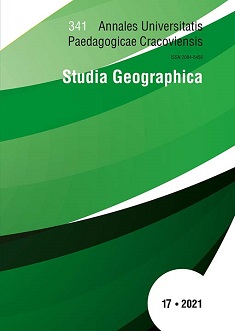History of Polish education in Brazil on the example of selected states
DOI:
https://doi.org/10.24917/20845456.17.10Abstract
The article discusses the issues of polish education in Brazil on the example of selected states, initiative and entrepreneurship of Poles, which contributed to the development of the community in question in the new homeland, and history of polish migration to the biggest country of South of America. It presents an information which comes from research that one of
the authors conducted among people of Polish origin living in the states of Parana, Santa Catarina, Rio Grande do Sul and Rio de Janeiro. The article includes information about migration from Poland to Brazil: the cause, course and effect. In understanding the phenomenon of the Polish community living in the state of three southern states helps a brief history including a description of Polish migration from south of Brazil. The article also provides information on the current situation of teaching Polish in this country
References
Druszcz A. (1984). O bilingüísmo em Araucaria - interferência polonesa na fonologia portuguesa. Kurytyba.
Dvorak A. (2013). A Hidden Immigration: The Geography of Polish-Brazilian Cultural Identity.Los Angeles .
Dworecki T. (1980). Zmagania polonijne w Brazylii. Tom I. Polscy werbiści 1900-1978. Warszawa.
Kucharski S. (1996). Bilingüísmo e biculturação nas comunidades étnicas polonesas no sul do Brasil. Perspectiva, 20 (69), 53-67.
Kula M. (1987). Historia Brazylii. Wrocław.
Kursy języka polskiego, http://www.kurytyba.msz.gov.pl/pl/polonia_w_brazylii/kursy_jezyka_polskiego/.
Łapaj J. (2013). Polacy w Brazylii: aspekty historyczne i współczesność. Pisma Humanistyczne,10, 11-29.
Malikoski A., Kreutz L. (2016). Escolas entre imigrantes poloneses no Rio Grande do Sul e a Nacionalização do Ensino. Revista do Centro de Educação, 41/1, 67-79.
Mazurek J., Kaczanowski L. (1999). Chłop polski w Brazylii. Warszawa.
Miodunka W. (2003). Bilingwizm polsko-portugalski w Brazylii. Kraków.
Miodunka W., Oświata polonijna w Brazylii, http://twencze.blogspot.com/2008/03/owiata-polonijna-w-brazylii.html.
Nikodem P., Pionierzy bez Bandery, http://czytelniapolska.blogspot.com/2010/09/nikodem-p-pionierzy-bez-bandery.html.
Olcha A. (1971). Brazylijskie profile. Warszawa.
Orzeł-Dereń K. (2013). Śladami polskich kolonistów w Brazylii. Historia osadnictwa na terenach Santana. Kraków.
Orzeł-Dereń K. (2014). Meandry wielokulturowości. Tożsamość dzieci i dorosłych w społeczeństwie wielokulturowym na przykładzie Polonii brazylijskiej w municypium Cruz Machado. Pedagogika Przedszkolna i Wczesnoszkolna, 2(4), 41-54.
Pabis, N.A., Souza Martins de M. (2014). A escola como preservação da cultura - o modelo polonês. Interfaces Científicas - Educação, 2(3), 181-195.
Polonia w Brazylii, http://www.kurytyba.msz.gov.pl/pl/polonia_w_brazylii/polonia_w_brazyli.
Siemiradzki J. (1900). Szlakiem wychodźców. Wspomnienia z podróży po Brazylii. Warszawa.
Smolana K. (1983). Za ocean po lepsze życie. Warszawa.
Stańczewski J. (1925). Wpływ języka portugalskiego na język kolonistów polskich w Brazylii. Świat Parański, 6, 18-34.
Wachowicz R.C. (1970). As escolas da imigração polonesa no Brasil. Anais da Comunidade Brasileiro-Polonesa, t. II,
Wachowicz R.C. (2002). As escolas da colonização polonesa no Brasil. Curitiba.
Wenczenovicz T.J. (2013). Mali Polacy. Codzienność polskich dzieci w Brazylii (1920-1960). Warszawa.
Wieloch S. (1939). Kolonia Cruz Machado w Paranie. Warszawa.
Żabko-Potopowicz B. (1936). Osadnictwo polskie w Brazylii. Warszawa.150 lat osadnictwa polskiego w Brazylii - zarys historyczny. (2019). Opracowania tematyczne OT-673. Warszawa: Kancelaria Senatu, Biuro Analiz, Dokumentacji i Korespondencji.
Downloads
Published
Issue
Section
License
Copyright (c) 2022 Annales Universitatis Paedagogicae Cracoviensis Studia Geographica

This work is licensed under a Creative Commons Attribution-NoDerivatives 4.0 International License.
The submission of a paper to be published is synonymous with an agreement to transfer the copyright free of charge from the author to the publisher. The author also agrees to permit the publisher to publish the paper in printed form, open access online form, digital library form and other digital platforms with which the publisher has or will have a publishing agreement. Furthermore, the author agrees to not limit the number of copies that may be printed or issued by the publisher. In the case of co-authored papers, it is assumed that the corresponding author is authorized to represent the remaining co-authors in this respect. Authors are requested to sign a copyright declaration.

